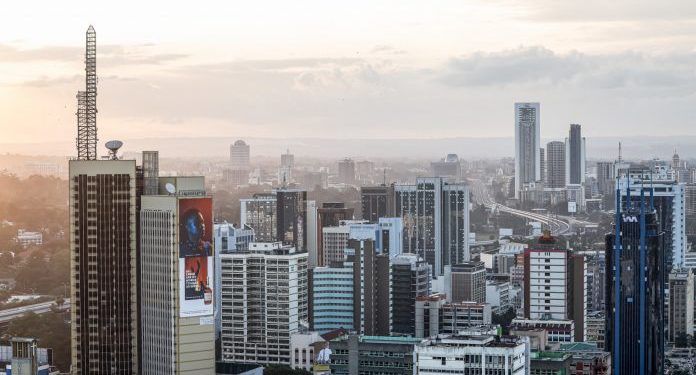Kenya is the biggest economy in East and Central Africa. The nation is also a popular destination for foreign direct investment FDI thanks to its several expanding and lucrative sectors, including tourism and agriculture.
Investors frequently search for affordable stocks to invest in. Similarly, business owners and entrepreneurs are constantly striving to grow their companies in prosperous economies like those in emerging countries.
Here are the top sectors attracting investors in Kenya:-
Energy
Energy is the primary industry luring investors to Kenya. Kenya has successfully adopted more renewable energy than any other nation in the region, with less than 20% of its electricity mix coming from fossil fuels, according to the energy and petroleum report from 2021. An open tender system (OTS) for sourcing petroleum products has also been credited with fostering robust competition in the petroleum sector.
Over the past 20 years, Kenya’s power sector has grown steadily. Kenya also possesses exceptional renewable resources, as shown by its position as one of the world’s lowest-cost geothermal power developers. Kenya has also made a concerted effort to enhance grid access, more than doubling the percentage of homes with access to electricity from 32% in 2013 to 75% in 2022.
Read: How Kenyan Firm Software Technologies Limited Allegedly Defrauded South African Investors Ksh594M
Financial Sector
The banking sector in Kenya maintains its economic expansion by utilising significant savings to fund investment requirements. The Brookings Financial and Digital Inclusiveness Project (FDIP) placed the nation top in the world in 2015 for using technology to promote connectivity. Additionally, Kenya has a sizable and comparatively well-developed banking sector that caters to the national, regional, and international markets. In Kenya, 44 banks are officially registered. Global brands including ABSA, Citibank, and Standard Chartered Bank are among them.
In their half-year results ending in June 2022, almost all of Kenya’s commercial banks reported higher net profits than they did the previous year, bucking a challenging economic environment that has been hampered by protracted electoral uncertainty and the pandemic.
In their half-year trading, the earnings of other companies like the Kenya Commercial Bank (KCB), Co-operative Bank, Absa Bank Kenya, and NCBA Group notably increased by 28.4%, 45%, 13%, and 11%, respectively. The majority of banks place the higher revenue in part on increasing lending and a rise in interest income.
Information Communication Technology
When it comes to attracting the strategic business operations of ICT businesses in emerging countries, Kenya has emerged as the preferred global technology hub. Kenya is regarded as one of the top innovation hubs in sub-Saharan Africa and is the regional leader in ICT in East and Central Africa. Nairobi serves as the regional headquarters for several high-profile tech businesses’ operations in East, Central, and Africa including Microsoft, Samsung, Andela, Kaspersky, Cisco, and Airtel.
Processing and Production
Production and processing are important areas for Kenya’s economic growth. This industry offers numerous opportunities for direct and joint investment, including agro-processing, apparel manufacturing, the assembly of electronics and automotive, as well as opportunities in the production of plastics, paper, chemicals, pharmaceuticals, metals, and engineering goods for both domestic and international markets. In addition to the substantial demand for locally produced goods, Kenya’s membership in the East African Community (EAC) and the Common Market for East and Southern Africa (COMESA) makes regional markets for its manufactured goods available.
Read: Phase One Of Konza Technopolis Records Over 80 Percent Investors Uptake
Transport
To enhance trade flows in the region, the Kenyan government is actively looking for bids to upgrade and extend infrastructure networks both domestically and throughout East Africa. Additionally, actions in the infrastructure sector will build a foundation for investments in the cleanest, least expensive power technologies and improve the institutional and legal framework for PPPs to draw in more private investment. Savings of around $1.1 billion over ten years could be achieved by matching renewable energy investments to demand growth and assuring competitive pricing through a competitive, open auction-based system.
Agriculture
In the EAC area, Kenya has one of the highest rates of agricultural productivity. Agriculture accounts for 70% of the nation’s exports and 85% of the labour force in rural areas. The agriculture industry has maintained annual growth of about 5% and has tremendous room to expand. Kenya encourages foreign investors to look at business opportunities along the entire agribusiness value chain, from primary agriculture to value addition and food supply processing. Agribusiness already brings approximately 20% of all FDI to the area, demonstrating its enormous investment potential.
Real estate and construction
Kenya’s construction industry is well-established and offers top-notch engineering, building, and architectural design services. Kenya also has a growing middle class, which has accelerated urbanisation and raised consumer demand for high-end products and services. By 2050, 50% of the population is projected to reside in urban areas, continuing the current trend. Over the previous ten years, the nation’s per-capita income climbed at a compound annual growth rate (CAGR) of 2%.
Read: President Ruto Woos US Investors
The development of residential, commercial, and industrial structures will have more opportunities as a result of the population’s rapid growth and the rising demand for affordable housing. The construction and real estate industries are among the greatest places to invest in Kenya.
Tourism
One of Kenya’s most significant industries, tourism is closely related to other key sectors like transportation, food production, retail, and entertainment. Furthermore, foreign investors in Kenya have the chance to take advantage of many Government-led programmes to draw investment into the industry as one of the most well-liked locations for both business and pleasure travel worldwide. These include, among other things, the creation of new, globally recognised hotels, the branding of high-end parks, the creation of high-value niche items, and MICE tourism facilities.
















